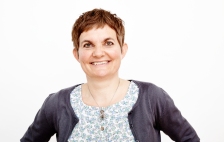Anne Tortzen
Here is a Danish success story about co-production. It involves cycling, of course, as we are discussing Denmark!
I am a Dane, currently based at INLOGOV as a visiting PhD student. I am working on a thesis on co-production in Danish municipalities, and I am getting increasingly challenged by this seemingly ambiguous, slippery and magic concept that is co-production. Is co-production a panacea to democratize and improve public services or is it just a concept invented to ‘sugar coat’ savage cuts in public spending by shifting responsibilities on to citizens? Or is it, for that matter, something in between?
At its core co-production is about active citizens, communities and governments working together to create better outcomes of public services. And I believe that to go on believing in the possibility of this, we must tell the stories of the successes.
So here is a success story about how Danes co-produce. It is about a project called ‘Cycling for all ages’, the core idea of which is that everybody – regardless of age and health – should be entitled to get ‘around and about’ on a bicycle and feel the ‘wind in their hair’. In more conventional terms it is about improving the quality of life of older and disabled people – and improving relationships and fostering friendship across people of different age groups.
So, the essence of the co-production initiative is this: Volunteer ‘pilots’ offer free rides on bicycle rickshaws (funded by the local council) to older and disabled people, who have difficulties getting around – or who would just like some new company and inspiration. The initiative started in Copenhagen four years ago and is now running in more than 60 Danish municipalities with a total of 2500 volunteer ‘pilots’.
The initiative was started in Copenhagen by an ‘ordinary’, but quite entrepreneurial citizen, Ole. At the time he was living close to care home in a residential part of Copenhagen and was observing the inhabitants in wheelchairs being pushed around the block. So the idea struck him: Why not give these inhabitants the opportunity of seeing more of the city? Ole, himself, is a keen cyclist. So he hired a bicycle rickshaw and knocked on the door of the care home, asked to speak to the manager and offered his bicycle services. And this is exactly the defining moment of the co-production process: How does a public servant respond to a citizen initiative such as this? As a bureaucrat thinking about the risks and hassle of the whole endeavor – or with trust and appreciation of an active citizen wanting to contribute? Fortunately, Ole got the latter reaction – and that, I think, tells us that the most important ingredient in successful co-production is trust!
So in which sense is this co-production? I would argue, that we are talking about ‘co-produced design and production of welfare services that enhance the quality of life’ made possible through contributions from care workers and councillors, active citizens and the older ‘service users’ themselves in the following way: The local councillors allocate means for buying one or more bicycle rickshaws and maintaining them. The care workers contribute by promoting the bicycle activity to the older people and assisting Tom in getting ready for his trip. Sometimes the care workers also volunteer to drive the bicycle. Volunteers of all ages (the youngest is only 12) and origins contribute as ‘pilots’ riding the bicycles and taking care of the planning and coordination of trips and of recruiting more volunteers – all via Facebook (check out 12-year-old Christian’s short clip by clicking here). And finally, Tom co-produces his own welfare service by deciding where he wants to go on the trip and what stories about his life he would like to share on the way. And he gets an immense boost in life quality out of it – as is obvious from this film about Torkild, aged 92, on a nostalgic trip through Copenhagen with Ole as his ‘pilot’.
It may or may not be, that this ‘additive’ co-produced service to the elderly saves public expenditure in the long run – but it surely does bring about quality of life and social capital. And that, I think, is the best we can hope for from co-production.
PS: The success story is no longer solely Danish. The concept of Cycling without age has gone international – just like the Danish TV series Borgen and The Killing – and is now taking off in more countries all over the world.
Anne Tortzen is based at the University of Roskilde, Denmark. Alongside the PhD she works as a consultant on citizen engagement and co-production. Anne is the founder and director of Centre for Citizen Dialogue, which specializes in consulting with Danish and Nordic municipalities, ministries and institutions to develop citizen engagement in public policy and services.
